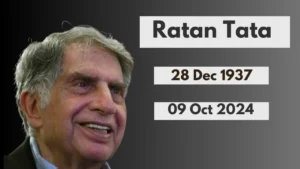Iran's Attack on Israel: A Deep Dive Into the Crisis
Historical Context of Iran-Israel Relations
The relationship between Iran and Israel has evolved significantly over the past century. Prior to the Iranian Revolution of 1979, Iran and Israel maintained diplomatic relations. However, following the revolution, Iran’s new Islamic regime adopted a staunchly anti-Israel stance, with Ayatollah Khomeini labeling Israel as the “Little Satan.” This rhetoric, combined with Iran’s growing influence in the region, has intensified hostilities over the decades.
In recent years, the situation has worsened with Iran’s support for militant groups, such as Hezbollah and Hamas, both of which have launched numerous attacks against Israel. Iran’s nuclear ambitions have also raised concerns, as Israel sees them as an existential threat. This longstanding tension set the stage for the current Iranian attack on Israel.
Recent Developments Leading to the Attack
The latest escalation can be traced back to a series of provocations and confrontations in the region. Iran’s increased military presence in Syria has heightened tensions with Israel, which views this as a direct threat. In response, Israel has conducted numerous airstrikes on Iranian military installations in Syria, targeting both Iranian and Hezbollah forces. These actions have further inflamed the situation.
Reports suggest that Iran’s latest attack on Israel was carried out via drone strikes and missile launches, targeting strategic locations within Israeli territory. The Israeli Defense Forces (IDF) responded with swift and decisive military action, launching counterstrikes on Iranian assets in Syria and Lebanon. The cycle of retaliation has sparked fears of a broader regional conflict.
Motivations Behind Iran's Attack
Iran’s motivations for attacking Israel are complex and multifaceted. At the core of this conflict is Iran’s desire to assert its influence in the region and challenge Israel’s dominance. Tehran views Israel as a key obstacle to its vision of a unified, Shia-led Middle East. Additionally, Iran’s support for Palestinian groups, including Hamas and Islamic Jihad, further fuels the hostility towards Israel.
Furthermore, Iran’s attack could be seen as a way to distract from its domestic issues. Economic sanctions, a struggling economy, and growing internal dissent have placed the Iranian government under immense pressure. By striking Israel, the regime can rally nationalist sentiment and shift the focus away from domestic problems.

Israel's Military Response
Israel has always maintained a policy of self-defense, and its response to the Iranian attack was no different. The IDF quickly mobilized its forces, launching retaliatory airstrikes on Iranian military targets in both Syria and Lebanon. The Israeli government has also ramped up its diplomatic efforts, seeking international support to counter the Iranian threat.
In addition to its military response, Israel has also bolstered its cyber warfare capabilities, targeting Iranian infrastructure and communications networks. This multi-faceted approach is designed to weaken Iran’s ability to launch further attacks and send a clear message that any aggression will be met with swift retaliation.
Regional Implications of the Conflict
The Iran-Israel conflict has far-reaching implications for the entire Middle East. Countries such as Saudi Arabia and the United Arab Emirates view Iran’s actions with deep suspicion, and many have openly sided with Israel in this ongoing struggle. The Abraham Accords, signed in 2020, further solidified the alignment between Israel and several Arab nations against Iran.
However, the situation remains volatile. Iran’s alliances with groups such as Hezbollah, Hamas, and the Syrian government mean that any escalation could quickly spiral into a larger regional conflict. The possibility of proxy wars being fought in Syria, Lebanon, or even Iraq cannot be ruled out, as these nations have historically been battlegrounds for Iran-Israel tensions.
The Role of Global Powers
Global powers such as the United States, Russia, and China also play a critical role in this conflict. The U.S. has been a staunch ally of Israel for decades and has provided military and financial support. Washington has condemned Iran’s attack and reaffirmed its commitment to Israel’s security.
Russia, on the other hand, has maintained close ties with both Iran and the Syrian regime. While Moscow has not directly supported Iran’s aggression against Israel, its involvement in Syria complicates the situation. Any missteps could lead to unintended confrontations between Russian and Israeli forces.
China, with its growing influence in the Middle East, has remained relatively neutral, focusing on its economic interests. However, its diplomatic approach may change if the conflict threatens the stability of the region.
Potential Global Ramifications
The Iran-Israel conflict has the potential to trigger a broader international crisis. Any large-scale war in the Middle East would undoubtedly affect global oil markets, leading to price spikes and economic uncertainty. Furthermore, the involvement of global powers such as the U.S. and Russia could escalate the situation into a global confrontation.
Moreover, the conflict could serve as a catalyst for increased terrorism and extremism. Militant groups may see this as an opportunity to launch attacks against Western nations, further destabilizing global security.
The Path Forward: Diplomatic Solutions or Continued Conflict?
While military actions continue to dominate the headlines, many believe that diplomacy is the only long-term solution to the Iran-Israel conflict. International organizations such as the United Nations have called for de-escalation and dialogue between the two nations. However, with neither side willing to back down, the prospects for peace remain uncertain.
In the short term, we are likely to see continued military confrontations between Iran and Israel, with the risk of broader regional escalation. The international community must act swiftly to mediate and prevent further violence.
IF YOU WANT MORE ARTICLE THEN CLICK HERE












107 thoughts on “Iran’s Attack on Israel: A Deep Dive Into the Crisis”
заработок на аккаунтах заработок на аккаунтах
аккаунты с балансом профиль с подписчиками
маркетплейс аккаунтов https://magazin-akkauntov-online.ru/
площадка для продажи аккаунтов покупка аккаунтов
аккаунты с балансом площадка для продажи аккаунтов
аккаунт для рекламы магазин аккаунтов
услуги по продаже аккаунтов купить аккаунт
Account trading platform Sell Account
Buy Pre-made Account Account Exchange Service
Find Accounts for Sale Marketplace for Ready-Made Accounts
Account Trading Account Selling Service
Account exchange Account Catalog
Ready-Made Accounts for Sale Accounts marketplace
Accounts for Sale Guaranteed Accounts
Account Acquisition Account Trading
Verified Accounts for Sale Database of Accounts for Sale
Purchase Ready-Made Accounts Accounts market
Account exchange Buy Pre-made Account
account acquisition sell accounts
account trading platform account store
sell account sell account
secure account sales account sale
gaming account marketplace secure account sales
account selling service account exchange
account marketplace account trading platform
account selling platform https://accountsmarketdiscount.com
account marketplace ready-made accounts for sale
gaming account marketplace account buying platform
online account store buy and sell accounts
ready-made accounts for sale account selling platform
sell accounts accounts for sale
buy and sell accounts online account store
account exchange service sell pre-made account
account purchase website for buying accounts
find accounts for sale account buying platform
website for selling accounts account selling platform
account buying platform buy pre-made account
sell account account purchase
accounts marketplace account market
find accounts for sale marketplace for ready-made accounts
buy account account marketplace
purchase ready-made accounts https://discount-accounts.org
accounts for sale account trading
website for selling accounts https://shop-social-accounts.org/
find accounts for sale database of accounts for sale
purchase ready-made accounts account exchange service
account exchange accounts market
account market https://accounts-marketplace.xyz/
account trading platform https://buy-best-accounts.org
account buying service https://social-accounts-marketplaces.live
account buying service https://accounts-marketplace.live
account store https://social-accounts-marketplace.xyz
online account store https://buy-accounts.space
sell pre-made account https://buy-accounts-shop.pro/
purchase ready-made accounts https://social-accounts-marketplace.live
account selling service https://buy-accounts.live/
guaranteed accounts https://accounts-marketplace.online
website for selling accounts https://accounts-marketplace-best.pro
маркетплейс аккаунтов соцсетей akkaunty-na-prodazhu.pro
маркетплейс аккаунтов соцсетей rynok-akkauntov.top
маркетплейс аккаунтов соцсетей https://kupit-akkaunt.xyz/
купить аккаунт akkaunt-magazin.online
биржа аккаунтов https://akkaunty-market.live/
площадка для продажи аккаунтов https://kupit-akkaunty-market.xyz
маркетплейс аккаунтов https://akkaunty-optom.live
купить аккаунт online-akkaunty-magazin.xyz
продать аккаунт https://akkaunty-dlya-prodazhi.pro/
продать аккаунт https://kupit-akkaunt.online
buy account facebook ads buy facebook accounts
facebook ad accounts for sale buy facebook accounts for advertising
facebook accounts to buy https://buy-ad-account.top
facebook ad account buy buying facebook accounts
buy fb account https://ad-account-buy.top/
buy facebook advertising accounts buy facebook account for ads
buy aged fb account facebook ad account buy
facebook ad accounts for sale https://buy-ad-account.click
facebook ad account for sale buy facebook accounts for advertising
buy aged google ads account https://buy-ads-account.top
buy verified google ads accounts buy-ads-accounts.click
buy account google ads buy google ads verified account
google ads account for sale buy google ads verified account
adwords account for sale https://buy-ads-invoice-account.top
google ads accounts for sale google ads account for sale
buy google ads invoice account buy aged google ads accounts
buy account google ads buy google ads invoice account
buy google ads verified account google ads reseller
buy facebook bm account https://buy-business-manager.org
buy verified google ads accounts https://buy-verified-ads-account.work/
facebook business account for sale facebook business manager buy
buy facebook ads accounts and business managers buy fb business manager
unlimited bm facebook buy-verified-business-manager-account.org
facebook bm for sale https://buy-verified-business-manager.org
buy facebook bm https://business-manager-for-sale.org/
buy verified business manager https://buy-business-manager-verified.org
buy bm facebook https://buy-bm.org/
buy facebook ads accounts and business managers https://verified-business-manager-for-sale.org/
facebook bm for sale https://buy-business-manager-accounts.org
tiktok ad accounts https://buy-tiktok-ads-account.org
tiktok agency account for sale https://tiktok-ads-account-buy.org
tiktok ad accounts tiktok agency account for sale
tiktok ad accounts https://tiktok-agency-account-for-sale.org
tiktok ads account for sale https://buy-tiktok-ad-account.org
tiktok ad accounts https://buy-tiktok-ads-accounts.org
tiktok ad accounts https://buy-tiktok-business-account.org
buy tiktok ads account buy tiktok ads
tiktok ads agency account https://tiktok-ads-agency-account.org
¡Saludos, amantes de la adrenalina !
Casinos no regulados sin reglas estrictas – http://casinossinlicenciaenespana.es/ casino sin licencia en espaГ±a
¡Que vivas jackpots impresionantes!